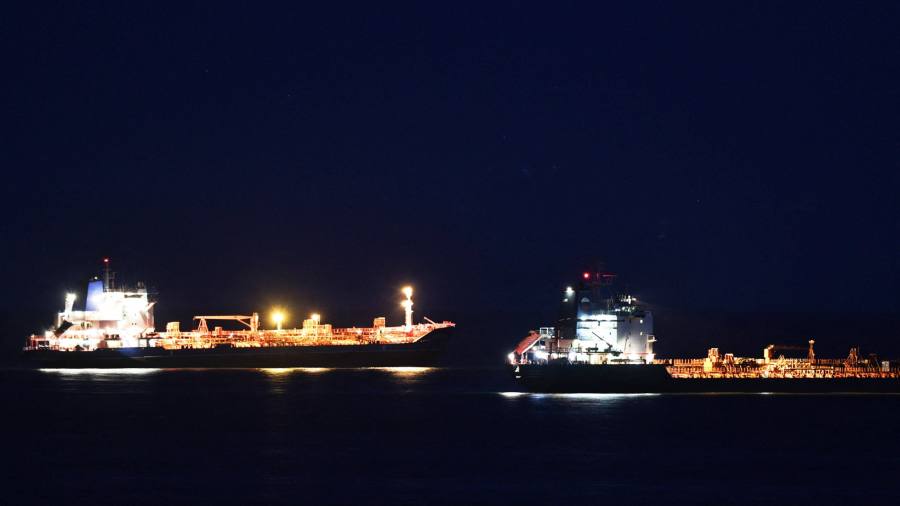Russian oil exporters have almost doubled their use of ageing ships since the start of the Ukraine war, raising concerns in the shipping industry that workers and the environment are being put at risk by vessels that belong on scrap heaps.
The share of seaborne exports of Urals — Russia’s main crude blend — carried on ships more than 15 years old has surged since the war began, according to figures from shipbroker Braemar. In the six months in the run-up to the conflict, the average share carried by older ships was 33.6 per cent. Since December 2022, the share has been 62.6 per cent.
Western nations have imposed a series of restrictions on the sale of Russian oil since the full-scale invasion of Ukraine in February 2022, but total seaborne exports have continued to rise as the product flows to Asia instead.
Major oil companies typically considered scrapping tankers after 15 years of wear and tear, but an increasing number of ships over this age were being acquired by unscrupulous shipowners willing to purchase older and cheaper vessels, industry figures said.
As they move into the shadows, these tankers are less likely to be properly inspected and operated by experienced crews, potentially increasing the risk of accidents that could lead to oil spills and even fatalities.
“There’s a lot [of talk] about whether these vessels are consistent with international standards,” said Henry Curra, head of research at Braemar. “The assumption is that [they are] not.”
The potential volume of older vessels being kept on the water is so large that they could soon make up a substantial chunk of the overall shipping fleet. Braemar forecasts that the share of ships aged 20 years or older in the global tanker fleet could increase from 6 per cent to as high as 16 per cent by 2025.
The data comes shortly after reports of an explosion on board an oil tanker in the South China Sea that has alarmed the shipping sector. Authorities said last week that three crew members were still missing from the Pablo tanker, which had been linked to shipments of sanctioned Iranian oil and was built in 1997.
Sanctions on Russia have expanded the risky but potentially lucrative business of transporting commodities restricted by western lawmakers, which also includes oil from Iran and Venezuela. This month, the Financial Times reported that one Indian company transporting Russian oil had rapidly become one of the world’s largest tanker owners, acquiring almost 60 vessels in the space of two years.
Curra said “know-your-customer” checks at Braemar, which connects ship sellers with buyers, had become “much more rigorous”.
“Since Russian sanctions, every single counterparty has to be checked out,” he said.
One London-based lawyer said that clients now “have to be really careful” if they are selling a ship or sending it to recycling, given the heightened risk that tankers could be acquired by unscrupulous shipowners or middle men.
“When a ship moves into the dark fleet, all of the compliance with international standards go out of the window,” the lawyer said.
Industry figures have expressed concern that some of the progress made on improving environmental standards could go into reverse. The number of oil spills from tankers has steadily declined since the 1970s, according to data compiled by the International Tanker Owners Pollution Federation.
Last month, the chief executive of one of the world’s biggest shipping insurers told the FT that “this is a social and environmental disaster waiting to happen”.
“Nobody will be there to pay” if an accident does occur, warned Rolf Thore Roppestad, head of Norway’s Gard.
Additional reporting by Chris Cook in London
Read the full article here




